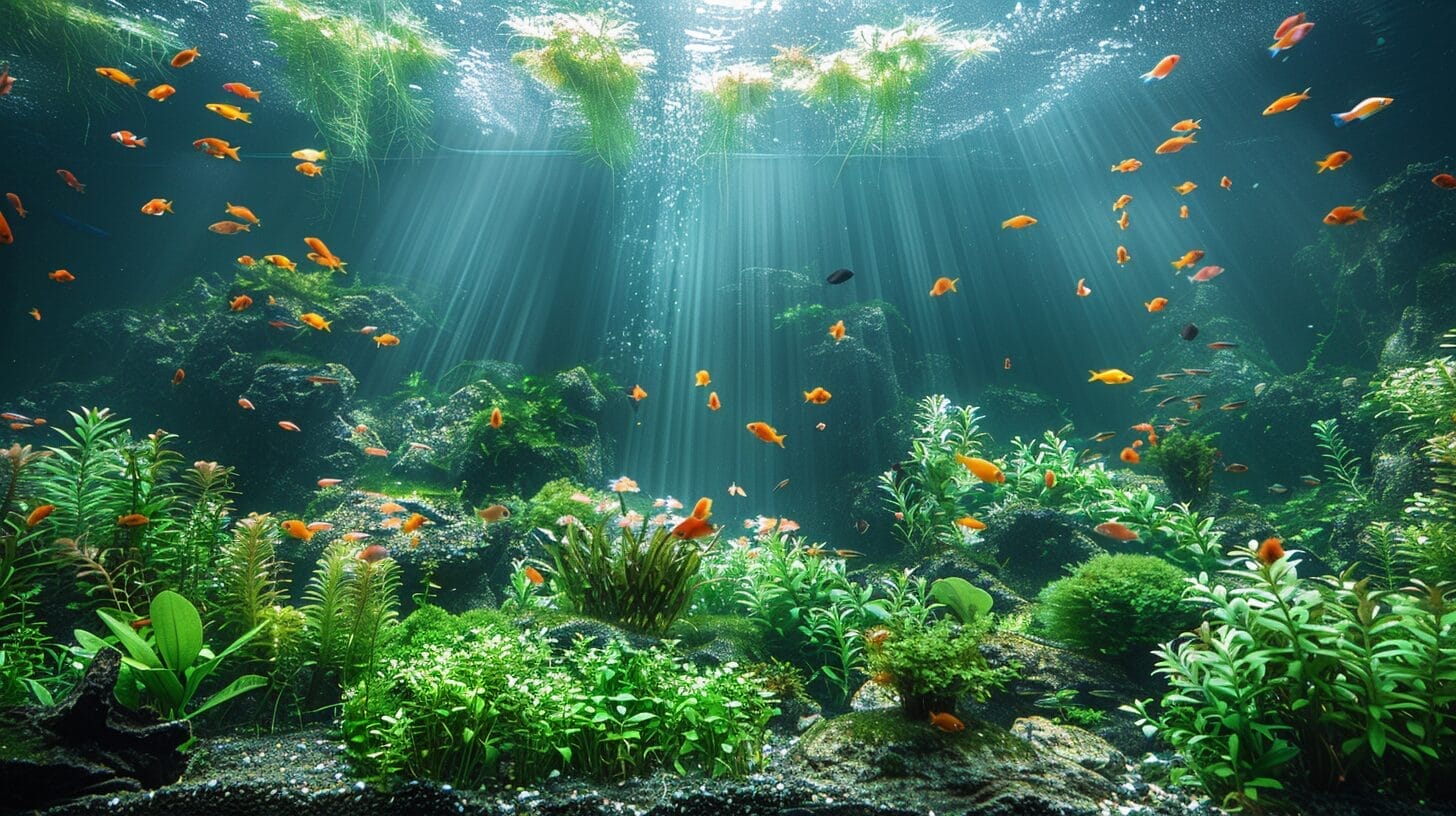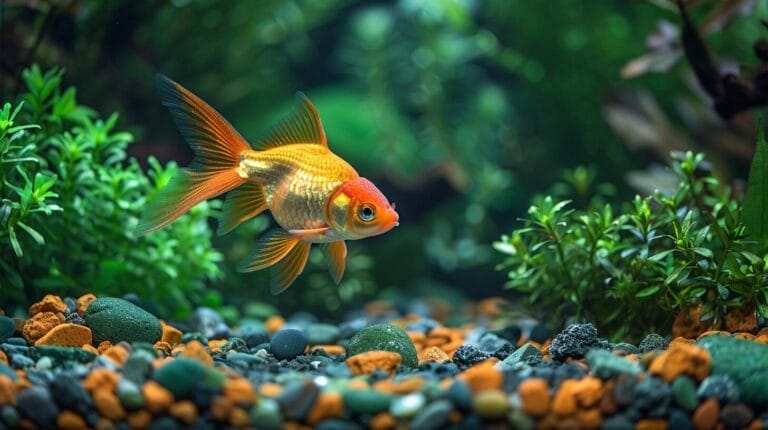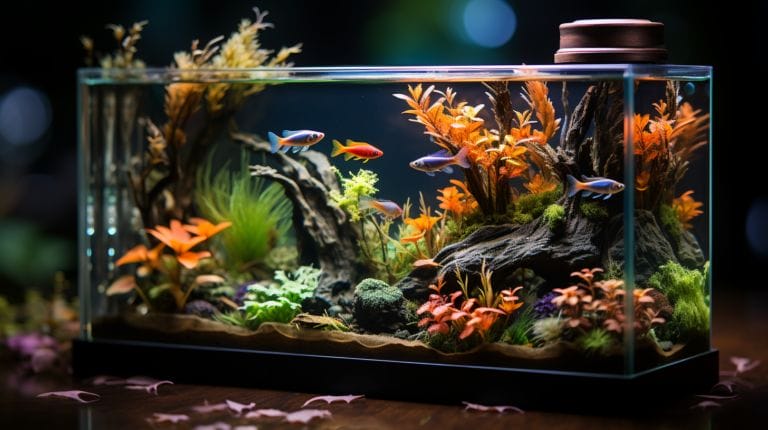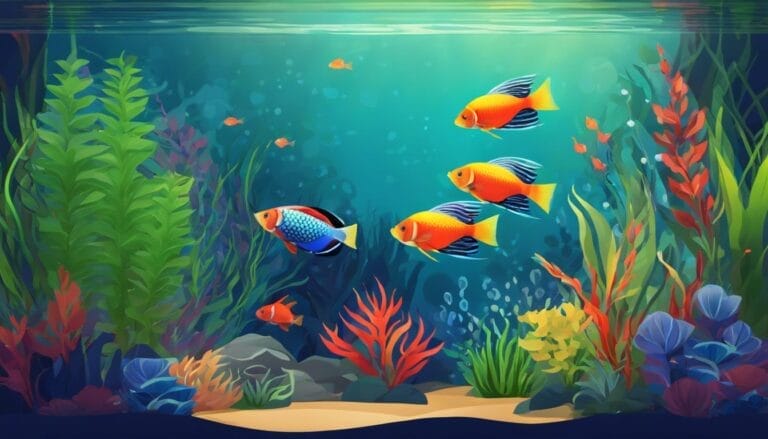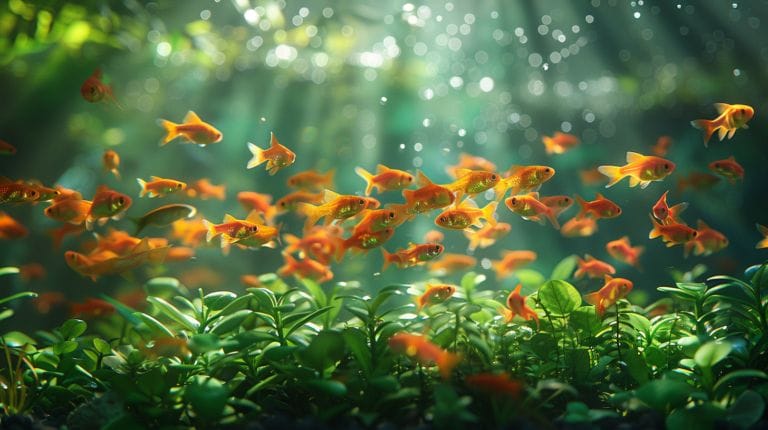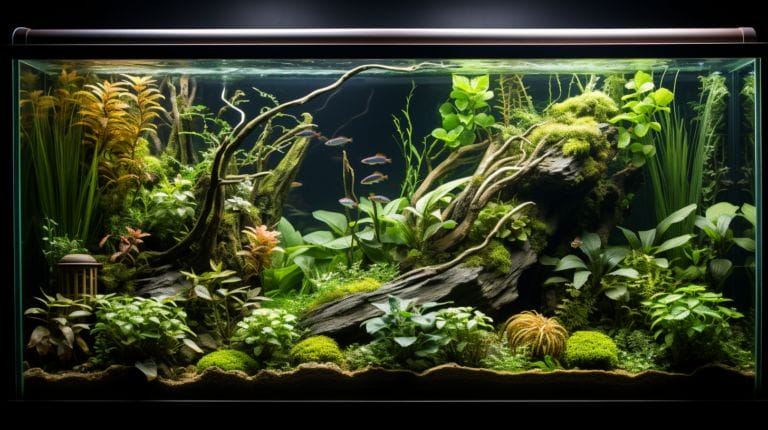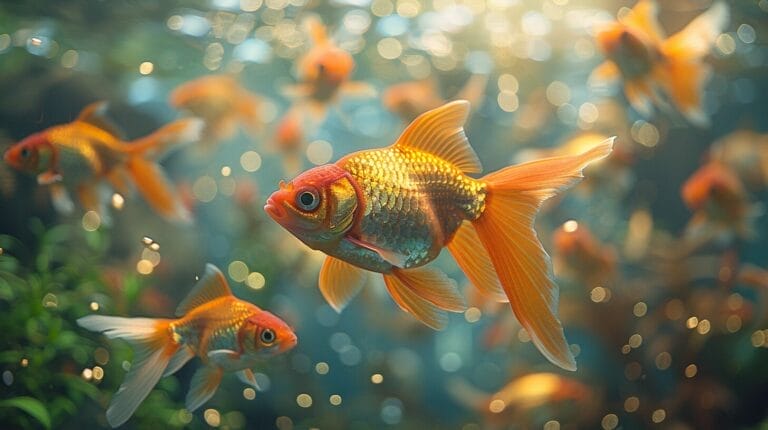What Kills Algae Naturally: A Comprehensive Guide
When dealing with algae, it’s vital to understand that algae thrive on excessive nutrients such as nitrogen and phosphorus. This leads to dense growth that blocks sunlight, hampering the growth of beneficial aquatic plants and potentially causing oxygen depletion when excess algae decompose.
Discover natural solutions to eliminate algae with our What Kills Algae Naturally guide. From eco-friendly remedies to preventative measures, explore effective solutions for keeping your environment algae-free.
Key Takeaways
- Aquatic lilies compete for nutrients, naturally controlling algae growth.
- Beneficial bacteria break down organic matter, depriving algae of nutrients.
- Aeration increases oxygen levels, promoting growth of beneficial bacteria.
- Barley straw releases compounds inhibiting algae photosynthesis.
- Regular water changes dilute nutrient concentrations, making the environment less favorable for algae.
Understanding Algae: The Natural Plant That Can Become a Problem
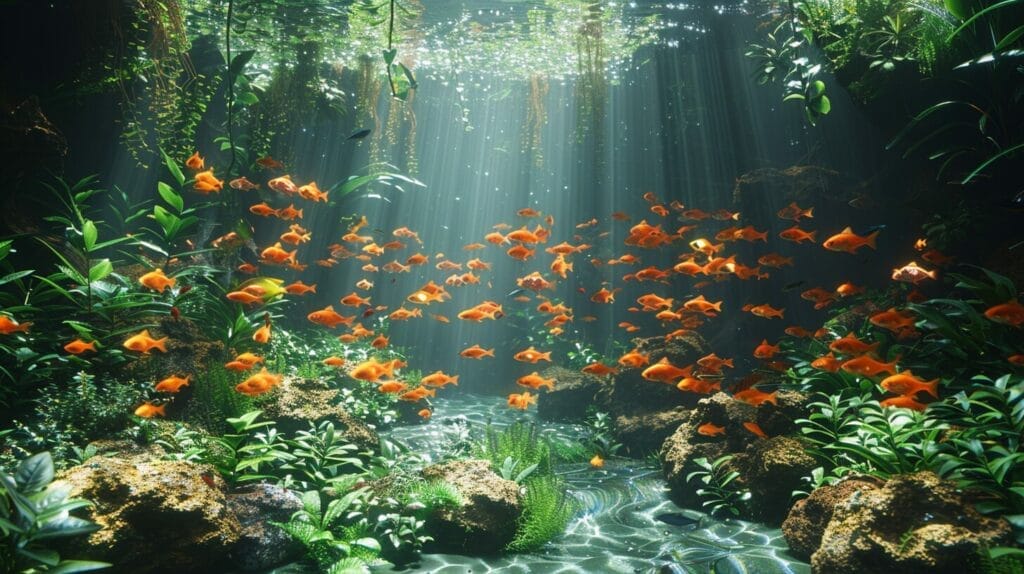
Algae, a natural plant found in various aquatic environments, can quickly become problematic when it proliferates uncontrollably. This rapid growth is often fueled by an overabundance of nutrients that algae thrive on, such as nitrogen and phosphorus.
As algae multiply at alarming rates, they form dense mats on the water surface, blocking sunlight from reaching aquatic life below. This lack of sunlight inhibits the growth of beneficial aquatic plants, disrupting the delicate balance of the ecosystem.
Moreover, when excess algae decompose, it can lead to oxygen depletion in the water, harming fish and other aquatic organisms. In severe cases, this can result in fish kills and a decline in overall water quality.
Traditional Ways to Control Algae and Their Drawbacks
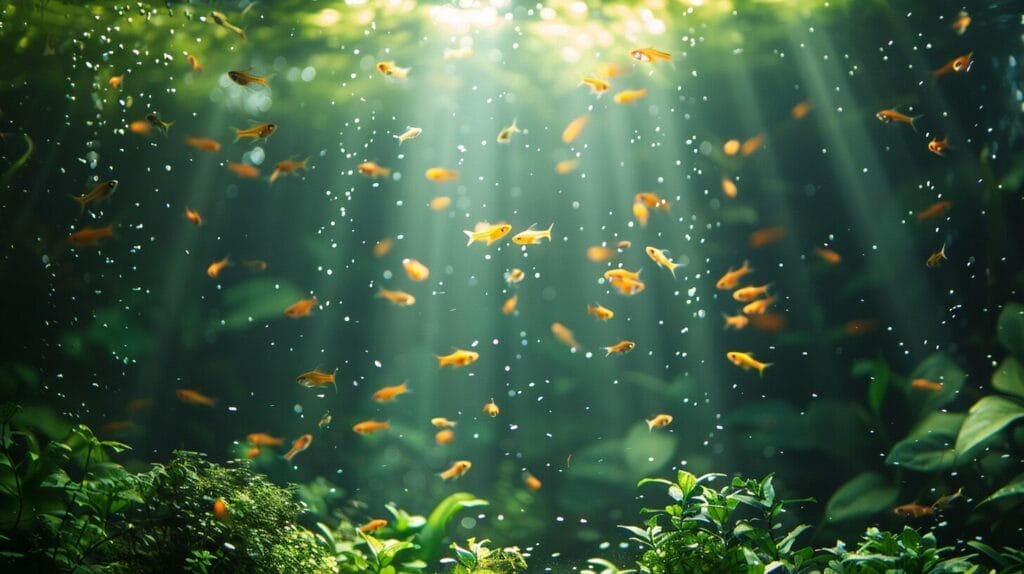
Traditional methods of algae control often involve the use of harsh chemicals or mechanical approaches. While these can effectively reduce algae populations, they come with significant drawbacks.
Harsh chemicals like algaecides can harm other aquatic organisms and disrupt the natural balance. These chemicals can also leach into the environment, causing long-term damage.
Mechanical methods such as algae scraping or dredging can be labor-intensive, costly, and may disturb the sediment, releasing nutrients that can further fuel algae growth. This disruption can have lasting consequences on water quality and biodiversity.
Natural Methods to Kill Algae: An Overview
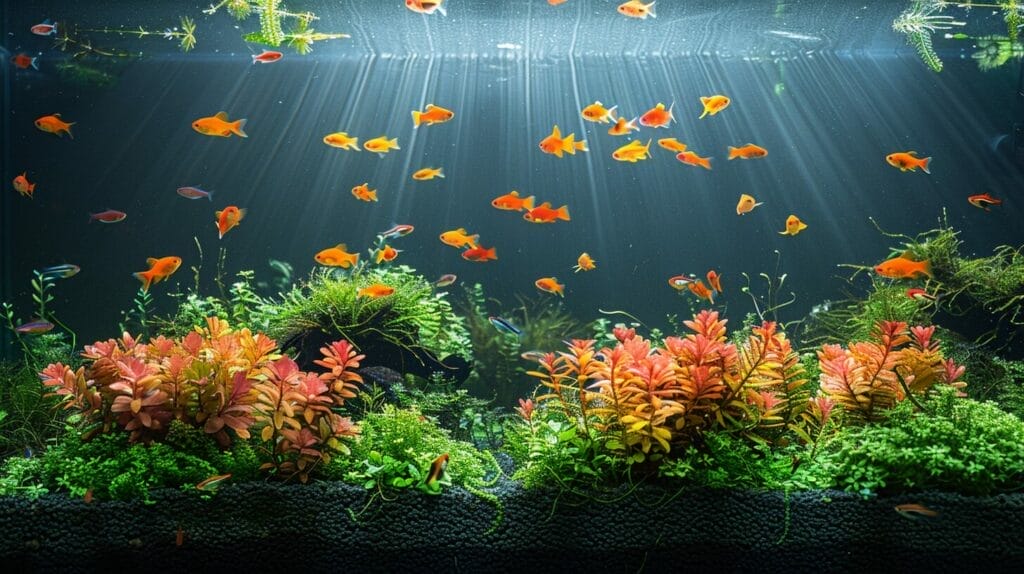
Plants play a critical role in naturally controlling algae growth in aquatic environments. Aquatic lilies, for instance, compete with algae for nutrients, helping to combat algae overgrowth. Beneficial bacteria also play a significant role by breaking down organic matter, depriving algae of the nutrients they need to thrive.
Increasing oxygen levels in the water through aeration promotes the growth of beneficial bacteria that consume excess nutrients, reducing algae growth. Regular water changes can help dilute nutrient concentrations, making the environment less favorable for algae. Using barley straw is another natural method that can inhibit algae growth by releasing compounds that prevent algae from photosynthesizing effectively.
Expert Tips on How to Get Rid of Algae Naturally
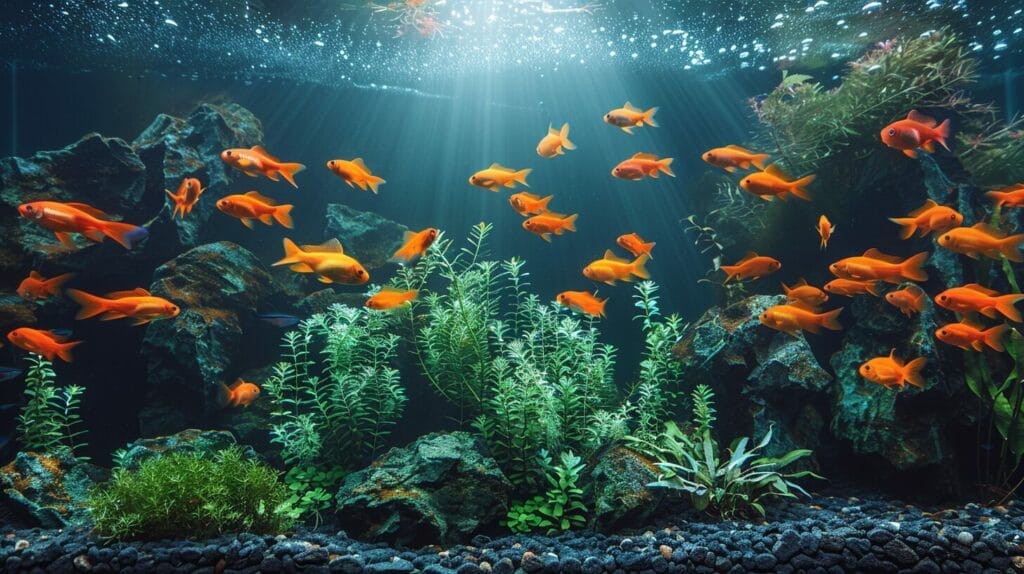
To keep your aquatic habitats algae-free, consider the following strategies:
- Regular Cleaning: Remove debris and organic matter to prevent nutrient buildup in the water.
- Water Condition Adjustment: Maintain proper pH levels and reduce sunlight exposure to discourage algae growth.
- Introduce Algae-Eaters: Add algae-eating fish or invertebrates like Plecostomus or Amano shrimp.
Preventing Future Algae Blooms: Effective Natural
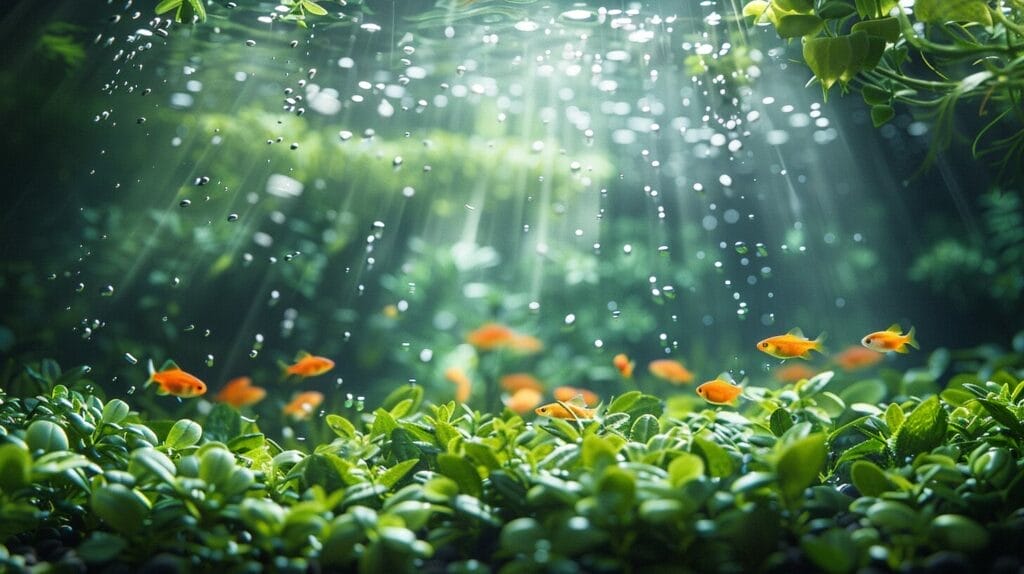
To prevent future algae blooms, we can employ various strategies that focus on limiting sunlight exposure and managing nutrient levels.
Using green dyes can reduce the amount of sunlight penetrating the water, inhibiting algae growth. Installing a quality filter system can help remove excess nutrients like fish waste that fuel algae blooms.
Regular water testing and monitoring can manage nutrient levels effectively, preventing the overgrowth of algae. Incorporating regular aeration ensures adequate oxygen levels, creating conditions less favorable for algae.
Conclusion
By utilizing expert tips and preventative measures, we can effectively control algae growth without relying on harmful chemicals.
Remember, nature has its own ways of keeping algae in check, and with a little effort, we can keep our aquatic environments healthy and thriving.
Let’s work together to combat algae naturally and sustainably.
Frequently Asked Questions
What is algae and why is it a problem for water features?
Algae are simple, plant-like organisms that can grow rapidly in water features. They can create an unattractive appearance, deplete oxygen levels, and outcompete desired aquatic plants.
What are some natural ways to kill algae in a water garden?
One natural way to kill algae in a water garden is by introducing algae-eating species such as snails or fish that feed on algae.
Can aeration help in controlling algae growth?
Yes, aeration can help control algae growth by circulating the water and preventing stagnation, which can limit algae proliferation.
How can maintaining proper water quality help in preventing algae growth?
Maintaining proper water quality by regularly testing and balancing nutrients in the water can help prevent excess nutrients that contribute to algae growth.
Is saltwater effective in killing algae?
Yes, saltwater can be effective in killing algae, but it is important to use it sparingly as overuse can harm beneficial species in the water ecosystem.

